
Owner & Attorney - Atlanta Personal Injury Law Firm
This article has been written and reviewed for legal accuracy and clarity by the team of writers and legal experts at Atlanta Personal Injury Law Firm and is as accurate as possible. This content should not be taken as legal advice from an attorney. If you would like to learn more about our owner and experienced Georgia personal injury lawyer, Nathan Whittenburg, you can do so here.
Atlanta Personal Injury Law Firm does everything possible to make sure the information in this article is up to date and accurate. If you need specific legal advice about your case, contact us. This article should not be taken as advice from an attorney.
Medical malpractice claims are among the most complex personal injury cases, requiring clear and detailed evidence to prove that a healthcare provider’s actions caused harm.
Unlike other injury claims, malpractice cases often involve specialized medical knowledge that must be explained carefully so judges, juries, and insurance companies can understand.
On this page, we’ll discuss the types of evidence in medical malpractice cases in Georgia, the concept of an “affidavit of merit”, how an experienced medical malpractice lawyer can help prove your case, and much more.
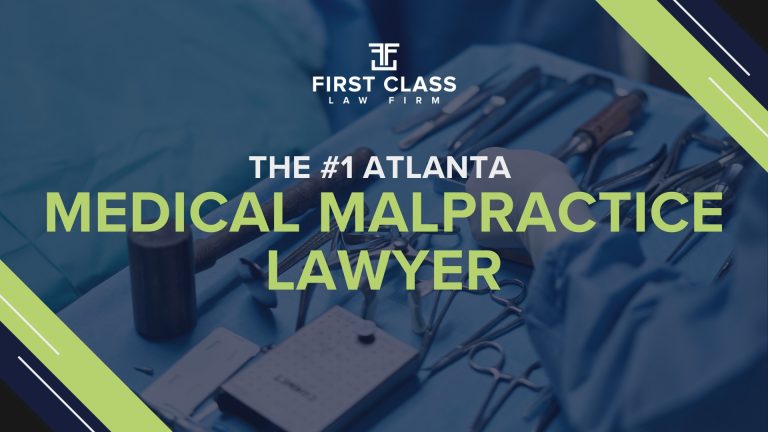
In Georgia, medical malpractice lawsuits rely heavily on the strength and credibility of the evidence presented.
Plaintiffs must prove that a healthcare provider failed to meet the accepted standard of care and that this failure directly caused injury or harm.
Evidence in these cases often includes medical records, expert testimony, diagnostic reports, and witness statements.
Each piece of evidence plays a critical role in demonstrating both negligence and causation.
Because Georgia law sets specific standards for what constitutes admissible medical evidence, thorough documentation and expert analysis are essential.
Understanding how evidence supports a malpractice claim can help injured patients and their families pursue the justice and compensation they deserve.
If you or a loved one suffered harm because of a medical provider’s mistake in Georgia, you may be entitled to compensation for your injuries, medical expenses, and other losses through a medical malpractice claim.
Contact First Class – The Atlanta Personal Injury Law Firm today for a free consultation.
You can also use the chat feature on this page to get in touch with our medical malpractice lawyer.
Medical malpractice occurs when a healthcare provider, such as a doctor, nurse, or surgeon, fails to deliver treatment that meets the accepted standard of care, resulting in injury to a patient.
Common examples include misdiagnosis, surgical errors, medication mistakes, and birth injuries.
It is essential to recognize that not every negative medical outcome constitutes malpractice.
Determining whether medical negligence occurred requires a careful review of medical records, expert opinions, and an assessment of the circumstances surrounding the treatment.
Due to the legal and technical complexities involved, medical malpractice claims necessitate a structured, evidence-based approach.
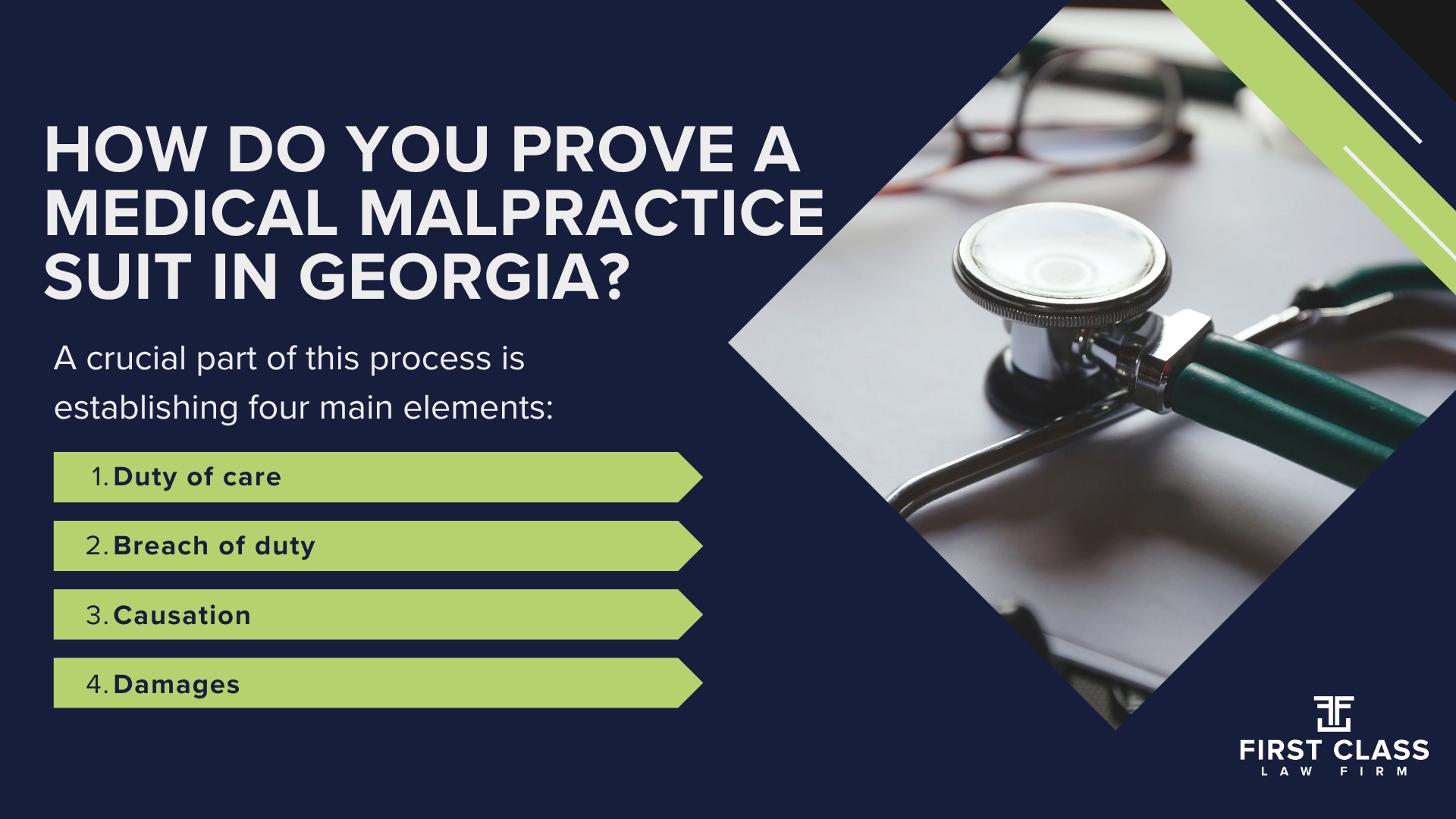
A crucial part of this process is establishing four main elements:
Every doctor–patient relationship establishes a duty of care.
In instances of medical malpractice, this duty pertains to the legal obligation that a healthcare provider is required to perform with a reasonable and competent level of skill and care, as anticipated from a qualified medical practitioner.
Consequently, the provider is expected to treat the patient with the skill, diligence, and competence characteristic of similarly trained professionals operating in comparable situations.
A doctor has an obligation to provide correct care, or have a duty of care, to their patients.
If a healthcare professional breaches the obligation expected of them, resulting in injury or death, they have breached their duty of care.
A breach occurs when a physician fails to meet the expected standard of care.
This can include:
After a breach of care has been identified, Causation must be proven.
Causation connects the breach of duty to the harm the plaintiffs suffered.
This step assesses whether the injury or worsening of the condition would have occurred if the breach had not taken place.
Medical evidence, typically provided through expert reports, is crucial in demonstrating that the breach directly caused harm.
Finally, the patient must demonstrate that they suffered quantifiable harm as a result of the negligence.
Damages may include:
Without proof of actual harm, even if negligence is proven, a claim cannot succeed.
Evidence supports the claim by making the facts undeniable rather than uncertain.
Courts give more weight to tangible documents and expert opinions than to patient statements alone.
In medical malpractice litigation, various types of evidence often play crucial roles in proving the necessary elements of the claim.
Here is a detailed overview of the kinds of evidence that lawyers typically rely on, how they are used, and why they are vital.
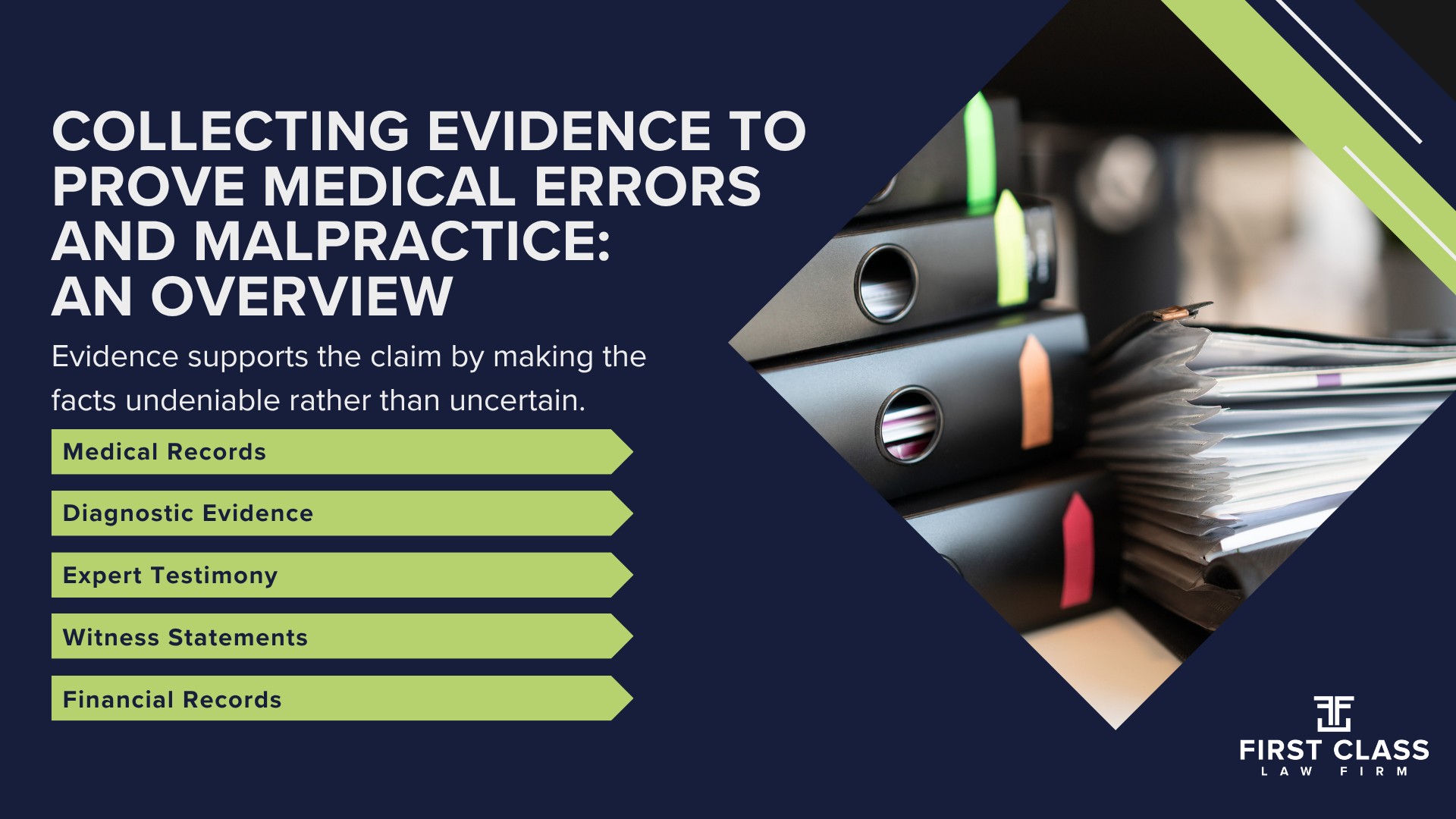
Medical records often serve as the primary evidence and form the basis of a malpractice case.
These records include treatment charts, progress notes, prescriptions, imaging orders, surgical reports, nurses’ notes, discharge summaries, audit logs, and electronic health record entries.
They document the patient’s medical history, diagnostic procedures, treatments provided, changes in condition, and clinical decisions.
Lawyers and medical experts depend on these records to review the timeline of care and compare it with actual care, as well as accepted medical practices and standards.
Diagnostic evidence helps identify if a correct diagnosis was missed, delayed, or mishandled, and whether that mistake caused harm.
This category includes imaging tests, pathology reports, blood tests, genetic testing, and other specialized examinations.
In malpractice cases, issues like anomalies, late readings, conflicting interpretations, or omitted tests can be critical.
Expert review of diagnostic data often reveals what the medical professional did wrong and how earlier detection or treatment could have led to a different outcome.
Because medical malpractice involves complex questions about the standard of care and Causation, expert testimony is almost always necessary.
Usually, an expert in the same medical specialty as the defendant reviews the evidence, compares what was done to accepted practice, and offers an opinion on whether the medical professional breached his duty of care.
Experts also help clarify medical concepts, connect medical errors to the harm caused, and discuss counterarguments.
Their reports, depositions, and trial testimony are often crucial in convincing the court.
Witnesses who observed the medical care or the patient’s condition can provide valuable insights that might not be captured in the medical record.
These could include nurses, technicians, hospital staff, family members, or caregivers.
Their statements can help establish when symptoms first appeared, confirm the timing of medical interventions, recall what was communicated between providers and patients, and highlight concerns that were raised but not addressed.
Since official records may omit or downplay specific details, witness testimony adds important context and can sometimes reveal gaps in documentation.
A successful malpractice claim must also determine the extent of the harm caused.
Evidence in this category includes hospital bills, invoices for diagnoses, treatment, rehabilitation, home care, medical devices, and prescriptions.
It also provides proof of lost wages, reduced earning capacity, and other out-of-pocket expenses, such as travel or lodging for medical appointments.
These documents demonstrate the economic damages directly caused by negligent care.
In many jurisdictions, attorneys may also employ expert economists or vocational specialists to estimate future losses from the injury.
In medical malpractice cases, evidence forms the basis for every claim.
Because these cases often involve complex medical issues and serious injuries, strong evidence is necessary to provide a clear and accurate account of what occurred.
Without dependable documentation and testimony, cases can quickly devolve into disagreements based on opinion, making it difficult to determine whether negligence occurred and how it affected the patient.
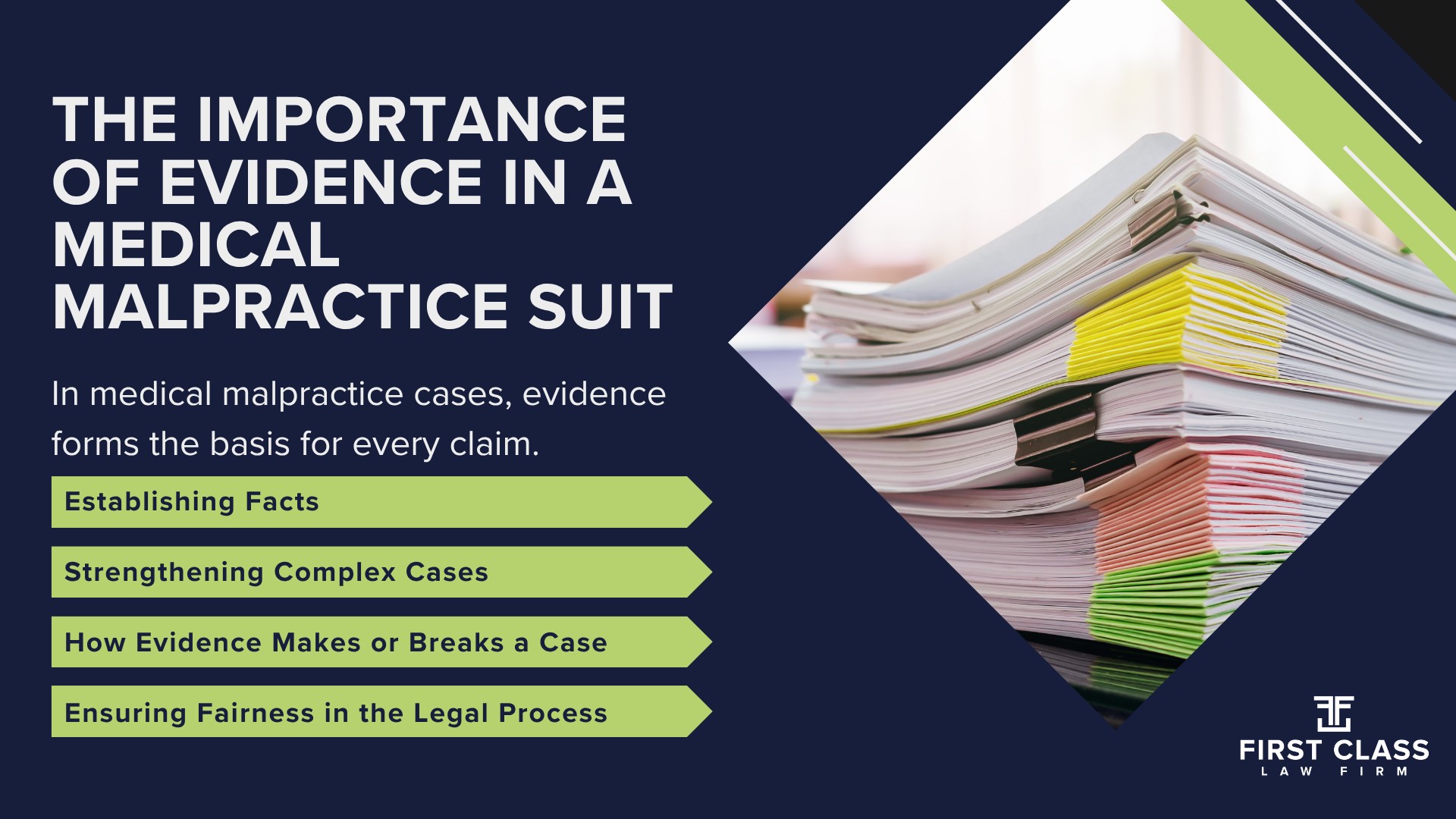
Establishing facts is crucial because it stops the defense from depending on speculation.
Healthcare providers and their insurers might claim that an underlying condition caused the injury or that the result would have occurred regardless of the care provided.
Objective evidence provides a clear and factual basis, helping to reduce doubts and uncertainties. This ensures the case is built on verifiable facts rather than unconfirmed claims.
Evidence also supports cases involving complex issues.
Claims such as wrongful death, delayed cancer diagnoses, or severe injuries like permanent brain damage often involve complex medical details that can be hard for non-medical professionals to understand.
Strong evidence clarifies these issues by showing not only what happened but also how it diverged from accepted medical standards.
In such situations, expert testimony and thorough records are crucial for establishing the connection between alleged negligence and the resulting harm.
The significance of evidence in a medical malpractice lawsuit cannot be overstated. It can determine the outcome of a case in the following ways:
Strong evidence can:
Weak or missing evidence can:
Ultimately, evidence is crucial for guaranteeing fairness in the legal process.
Courts and juries are expected to base their decisions on evidence rather than conflicting stories or incomplete accounts.
Relying on evidence makes sure that responsibility judgments are based on verifiable data.
This approach benefits all parties by focusing on whether the standard of care was followed and if any breach caused identifiable harm.
In Georgia, most medical malpractice lawsuits require an Affidavit of Merit to proceed.
This requirement acts as a helpful safeguard, preventing unfounded claims while ensuring that legitimate cases are reasonably considered.

Georgia law carefully balances protecting healthcare providers from lawsuits without sufficient claims with respecting patients’ right to seek justice.
An Affidavit of Merit is a signed document by a qualified medical professional confirming.
This document is signed after the expert reviews the patient’s records and confirms that there is a legitimate claim that the doctor breached his duty.
In other words, a knowledgeable professional has examined the medical records and determined that negligence may have occurred.
Typically, the affidavit must be filed concurrently with the lawsuit.
Failing to include it may lead to the case being dismissed before it is heard.
This rule is part of broader efforts to make the legal process fairer and more efficient.
It helps to reduce unfounded claims, keep litigation costs in check, and ensure that malpractice cases are supported by expert evaluation, not just speculation.
Not every medical professional is qualified to provide an Affidavit of Merit.
Georgia law, like in many states, establishes specific requirements to ensure that the affidavit is credible and based on the judgment of a properly qualified expert.
To provide an affidavit, the expert:
The expert signing the affidavit is typically someone with expertise in the same medical field as the person being sued.
This ensures that someone with similar training and background assesses the standard of care.
It is important to note that the expert providing the affidavit may not necessarily be the same expert who later testifies at trial.
The affidavit serves as an initial step to verify that the case has a legitimate basis, while trial testimony often involves a more detailed analysis.
The process of finding a qualified expert typically begins by sharing the patient’s medical records and treatment history with potential reviewers to determine if there is a reasonable basis for a claim.
Because the affidavit is so essential, it’s common for the defense to challenge it, often by arguing that the expert is not qualified enough or lacks the necessary specialty experience.
Ensuring that a properly credentialed and experienced professional signs the affidavit is therefore crucial to prevent the case from being dismissed at an early stage.
A Georgia Affidavit of Merit must include specific information to prove the case has a valid medical basis.
While the details may differ based on the situation, most affidavits generally contain the following:
The affidavit begins by outlining the expert’s professional background, including their medical specialty, years of experience, board certifications, and current or recent clinical work, which demonstrates that they are duly qualified to review the case.
The expert should demonstrate knowledge of the relevant medical standards applicable to the case, which is essential for determining whether the defendant’s actions were appropriate.
The affidavit must specify the particular acts or omissions by the defendant that, according to the expert, constitute a violation of the accepted standard of care.
These details are crucial to demonstrate that the claim relies on specific facts rather than just general allegations.
The affidavit should clarify how the alleged mistake probably led to or caused the patient’s injury. Establishing this link is crucial because proving malpractice involves more than just identifying a mistake; it must also be shown that the error resulted in harm.
Finally, the expert testifies under oath that, after examining the medical records, the claim is backed by medical evidence and has a solid foundation to proceed.
Together, these elements ensure that the affidavit is more than a formality. It provides the court with a clear, expert-supported explanation of why the case should move forward.
In Georgia, an Affidavit of Merit is typically required for almost all medical malpractice claims.
However, there’s a specific exception called the “common knowledge” exception.
This exemption applies only when the negligence is so apparent that an average person, without medical expertise, can identify it without expert input.
Examples include a surgeon leaving a surgical sponge or instrument inside a patient after surgery, or operating on the wrong body part.
In these rare cases, the negligence is so evident that an affidavit might not be required.
However, Georgia courts interpret this exception very strictly.
Usually, even if the error appears obvious to the patient, expert medical testimony is necessary to determine whether the healthcare provider’s conduct fell below the accepted standard of care and if it directly caused the injury.
Therefore, the affidavit requirement remains typical in Georgia, and the “common knowledge” exception is regarded as a limited exception.
In Georgia, only specific healthcare providers are authorized to sign an Affidavit of Merit.
The law requires that this affidavit be signed by a qualified medical expert who meets particular standards, ensuring its credibility and relevance to the case.
The expert must be a licensed healthcare provider in the U.S., authorized to practice medicine.
They should also share the same specialty as the defendant physician.
For example, if the case concerns an alleged mistake by an orthopedic surgeon, the affidavit must be signed by another orthopedic surgeon.
This ensures that someone with comparable training and expertise evaluates the defendant’s actions.
Finally, the medical professional should have recent clinical or teaching experience, typically within the past five years.
This ensures the expert stays current on the latest standards of care and contemporary medical practices, rather than relying on outdated knowledge.
These requirements help ensure the affidavit is credible by verifying that it comes from a qualified expert who can provide an informed opinion from the outset of the case.
Medical malpractice claims mostly rely on the strength of evidence provided.
Since healthcare providers and institutions may be hesitant to share records or admit errors, hiring an experienced medical malpractice lawyer is crucial for building a strong case.
Attorneys play a vital role in gathering essential documentation, consulting medical experts, and uncovering key details that demonstrate negligence.
Their efforts make sure that no evidence is overlooked and that each fact supports the patient’s claim.
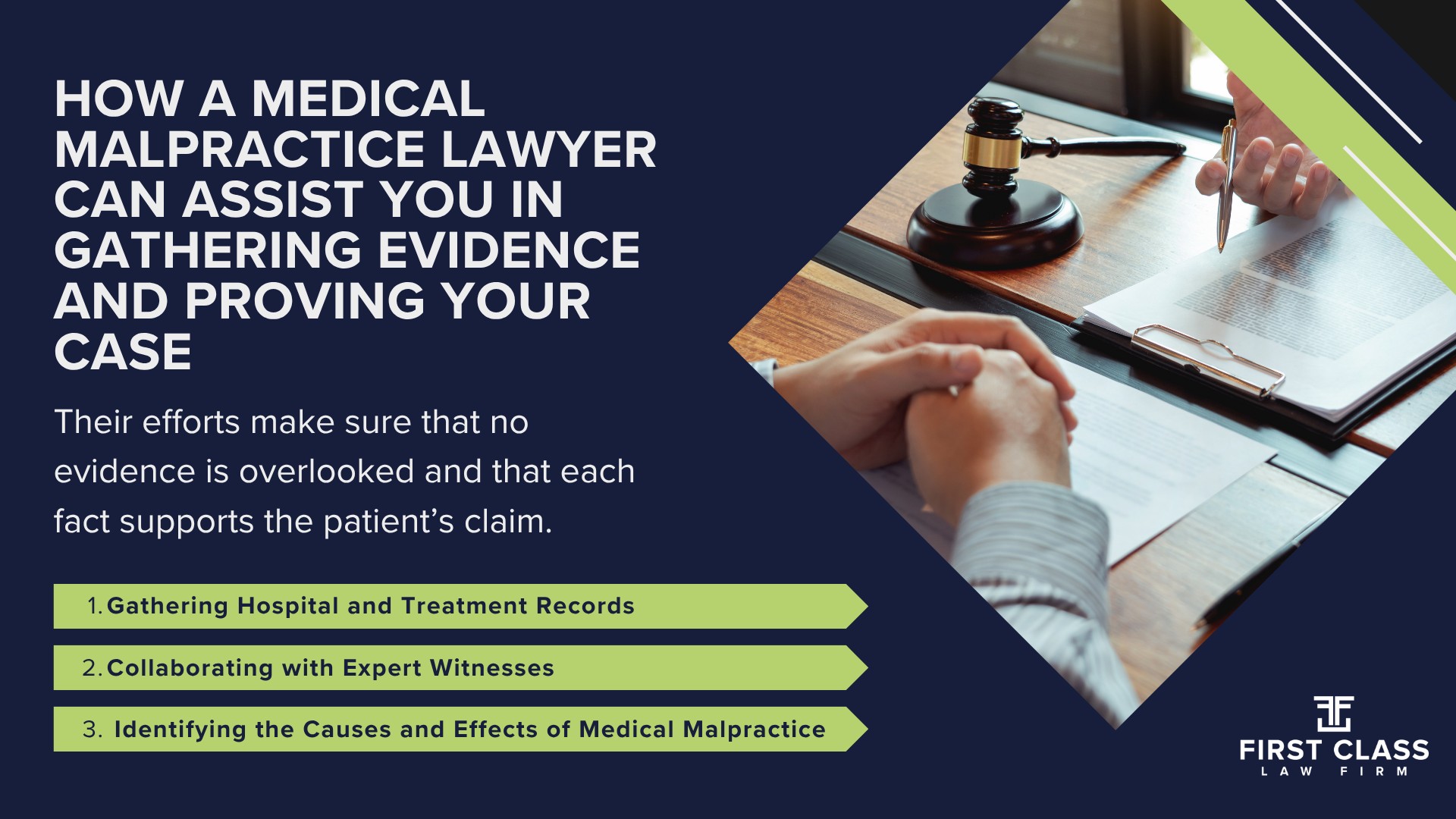
One of the key ways a lawyer assists in a malpractice case is by obtaining hospital and treatment records.
These records serve as the factual foundation of the claim, clearly outlining the care provided and when it was given.
However, medical institutions sometimes delay or refuse to release information, especially when errors might be uncovered.
In such cases, attorneys are authorized to issue subpoenas, court orders that compel individuals or organizations to produce documents or testify.
This legal process guarantees that essential records, test results, and internal communications are both disclosed and protected.
Having a skilled lawyer involved helps prevent healthcare providers from withholding key information that could prove negligence or error.
A strong medical malpractice case depends heavily on expert testimony.
Attorneys collaborate closely with qualified medical experts who review records and determine whether the standard of care was satisfied.
These experts evaluate whether the medical provider’s actions align with established professional standards.
If the care is found to be inadequate, the expert prepares detailed opinions and testimony to clearly and convincingly explain the mistake to a judge or jury.
Expert witnesses are essential in linking complex medical concepts with legal standards.
Their insights help show how a doctor’s or hospital’s mistake directly harmed the patient.
Beyond gathering records and coordinating experts, attorneys are trained to identify systemic issues and hidden causes of malpractice that might not be immediately obvious.
For example, they might recognize instances where:
By examining how these failures happened, lawyers can clearly connect the provider’s negligence to the harm experienced.
This analysis not only strengthens the case but also emphasizes broader patterns of error that could prevent future harm to others.
A medical malpractice attorney combines legal expertise with investigative and medical knowledge to build a strong case.
They ensure that every element, from records to expert reports, is collected and presented in a manner that meets the court’s standards of proof.
Ultimately, having an attorney on your side means having a professional who can uncover, interpret, and present the evidence that proves negligence and secures justice for the injured patient.
To qualify for a medical malpractice claim in Georgia, certain legal elements must be met.
First, it must be shown that a duty of care existed, meaning the physician or healthcare provider had a professional responsibility to treat the patient.
Next, there must be evidence of a breach of that duty, indicating the provider’s actions or inactions fell below the accepted standard of medical care.
Additionally, there must be a clear causal link demonstrating that this negligence directly caused the patient’s injury or worsened an existing condition.
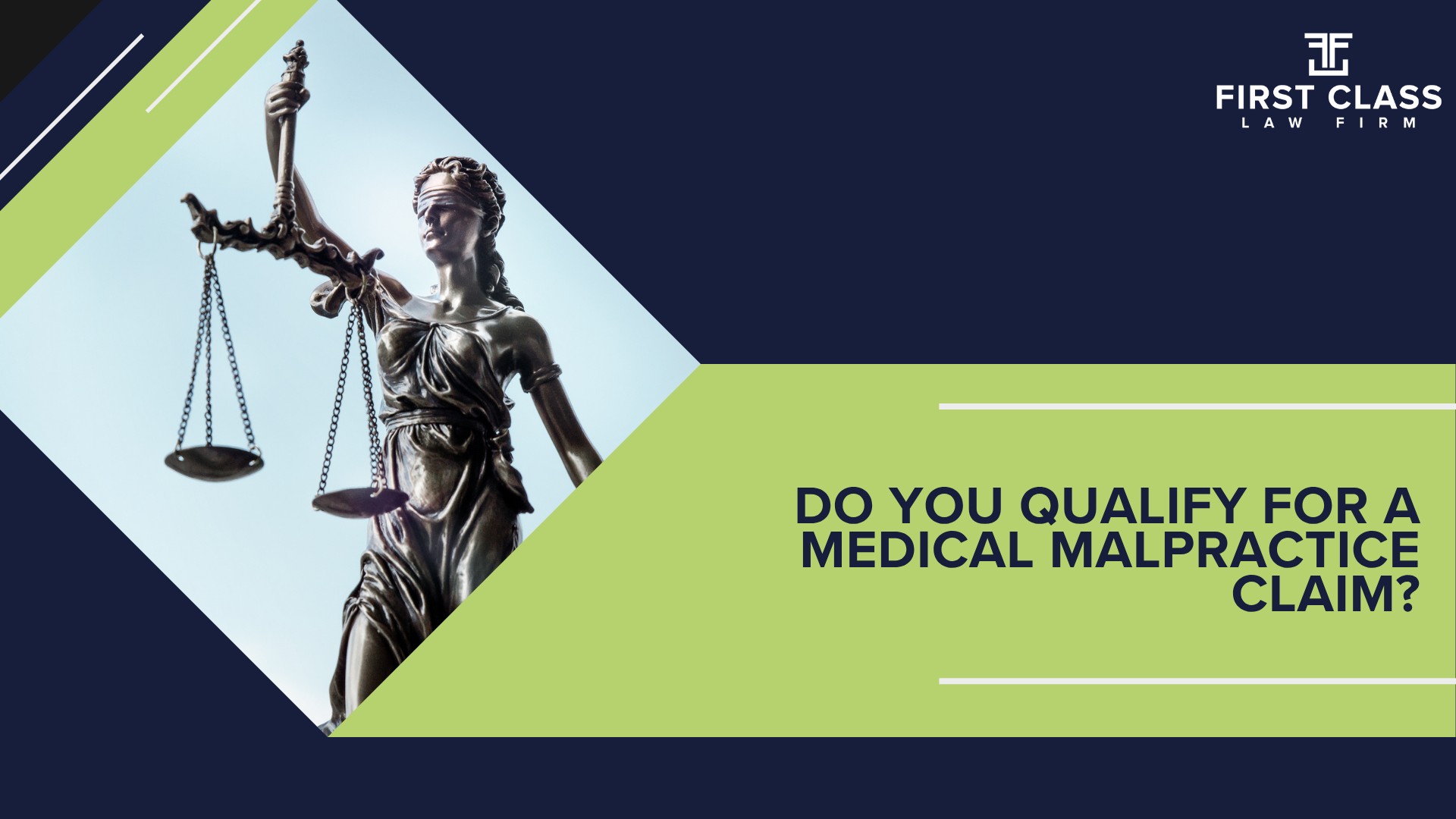
Finally, the claim must demonstrate damages, which can include physical injury, additional medical expenses, lost income, or emotional distress.
Together, these elements establish the basis of a malpractice case. Without evidence of all four, a claim may not meet the legal requirements to proceed.
Patients who successfully file a medical malpractice claim may be eligible for various types of damages, depending on the nature of the injury and its impact on their lives.
Economic damages encompass the financial costs directly caused by the malpractice.
These can include past and future medical expenses, the costs of surgery or corrective procedures, rehabilitation, long-term care, and lost wages or diminished earning capacity.
Non-economic damages cover the more personal and intangible impacts of malpractice.
These can include pain and suffering, emotional distress, loss of enjoyment of life, and loss of companionship when relationships are affected by the injury.
Punitive damages are awarded only in rare cases where the healthcare provider’s conduct involved gross negligence or intentional misconduct.
Their purpose is not to compensate the patient but to punish particularly egregious behavior and discourage similar actions in the future.
Finally, it is essential to note that many medical malpractice cases are settled out of court rather than going to trial.
Settlements let both parties avoid the uncertainty of a court decision and often provide compensation more quickly.
First Class offers experienced legal support to patients and their families in Georgia who are filing medical malpractice lawsuits.
The firm handles a variety of cases, including catastrophic injuries, surgical errors, and emergency room misdiagnoses.
Alongside strong legal advocacy, the firm is committed to providing compassionate support to clients facing medical negligence challenges.

First Class also offers free consultations to help individuals determine if they have a valid claim and understand the necessary steps to pursue it.
The firm aims to secure fair outcomes for clients by holding hospitals, physicians, and surgeons accountable for negligence, thereby fostering greater accountability within the medical system.
Proving Causation is often the most challenging part of a medical malpractice case.
In many cases of medical negligence, the injured patient must demonstrate that the harm would not have occurred “but for” the healthcare provider’s failure to provide proper treatment.
Demonstrating this link requires solid evidence, including medical records and expert witness testimony that clearly connect the doctor’s failure to the patient’s injury or wrongful death.
In most medical malpractice cases in Georgia, patients have two years from the date of injury to file a malpractice claim, known as the statute of limitations.
However, certain types of medical malpractice, such as delayed diagnosis, wrongful death, or injuries to minors, might have exceptions that extend this period.
Since deadlines vary based on the specifics of each case, consulting a qualified medical malpractice attorney is crucial to ensure you don’t lose your right to seek compensation.
Yes.
Medical malpractice lawsuits almost always require expert witness testimony.
These experts define the accepted standard of care, explain how the physician or surgeon deviated from that standard, and show how that deviation caused patient injury.
Without expert testimony, most medical malpractice cases cannot move forward, as expert analysis is essential for proving negligence and causation in these claims.
Absolutely.
Hospitals and healthcare facilities can be held liable in medical malpractice cases if negligence is linked to their staff, administrators, or healthcare professionals.
This may include failure to diagnose, surgical errors, improper training, or systemic hospital failures that result in an injured patient’s death or severe brain damage.
Institutional liability also encompasses issues such as negligent hiring, supervision, or failure to maintain proper equipment, which makes hospitals liable in certain malpractice lawsuits.
Common types of medical malpractice include misdiagnosis or delayed diagnosis, surgical mistakes, anesthesia errors, birth injuries, failure to obtain informed consent, and emergency room negligence.
Well-known examples of medical malpractice cases include incorrect medication doses, complications from spinal surgery, or failing to diagnose cancer, such as breast cancer or heart disease.
Each of these cases highlights the variety of errors that can happen when a healthcare provider’s mistake or hospital negligence causes avoidable harm to patients.
Strong cases often rely on detailed medical records, expert testimony, and documentation that shows how a provider’s actions deviated from accepted medical standards.
For example, if an attending physician failed to order an x-ray after a patient reported chest pain or abdominal pain, that omission could serve as crucial evidence that the provider did not offer appropriate treatment.
Yes.
When doctors failed to diagnose or respond properly to a cardiac arrest, a differential diagnosis review can reveal where negligence occurred.
If the patient experienced a permanent loss of function or life, the evidence would typically center on whether timely intervention and monitoring could have prevented the outcome.
Several famous medical malpractice cases have drawn national attention for exposing systemic issues in healthcare.
These cases often involved:
Each highlighted the importance of hospital accountability and comprehensive review by medical experts.
The average medical malpractice settlement varies widely depending on the severity of the injury, the strength of the evidence, and whether the case involves temporary or permanent loss of function.
Cases involving severe injury, such as spinal cord damage or fatal complications during general anesthesia, often result in higher compensation.
Factors like lost income, ongoing medical care, and emotional suffering also influence settlement amounts.
Below are general ranges based on case outcomes:
These figures are general estimates and do not represent guaranteed outcomes for any specific case.
Every medical malpractice settlement depends on unique factors such as jurisdiction, available evidence, and expert testimony.
Our firm specializes in personal injury cases across the state of Georgia, working on a contingency fee basis to ensure the best possible service for each client.
Click below to get a free, instant case evaluation and find out if you qualify for legal action immediately.
Would you like our help?
Atlanta Personal Injury Law Firm specializes in personal injury cases across Georgia, including motor vehicle accidents, premises liability, catastrophic injuries, and wrongful death claims. Our experienced Georgia injury attorney works on a contingency fee basis, ensuring you only pay legal fees once we secure your settlement or verdict.
Contact our experienced legal team by phone or visit our website for a instant case evaluation. Trust Atlanta Personal Injury Law Firm for dedicated legal representation in Georgia.
Our firm specializes in personal injury cases across the state of Georgia, working on a contingency fee basis to ensure the best possible service for each client.
Click below to get a free, instant case evaluation and find out if you qualify for legal action immediately.
Would you like our help?
Disclaimer: “Don’t Pay Unless You Win” and similar language refers only to fees charged by the attorney. Court costs and other additional expenses of legal action usually must be paid by the client. Contingent fees are not permitted in all types of cases. This website is an advertisement. Nothing is meant to be taken as legal advice or to give the impression that an attorney-client relationship has been created. Please speak with a legal professional.